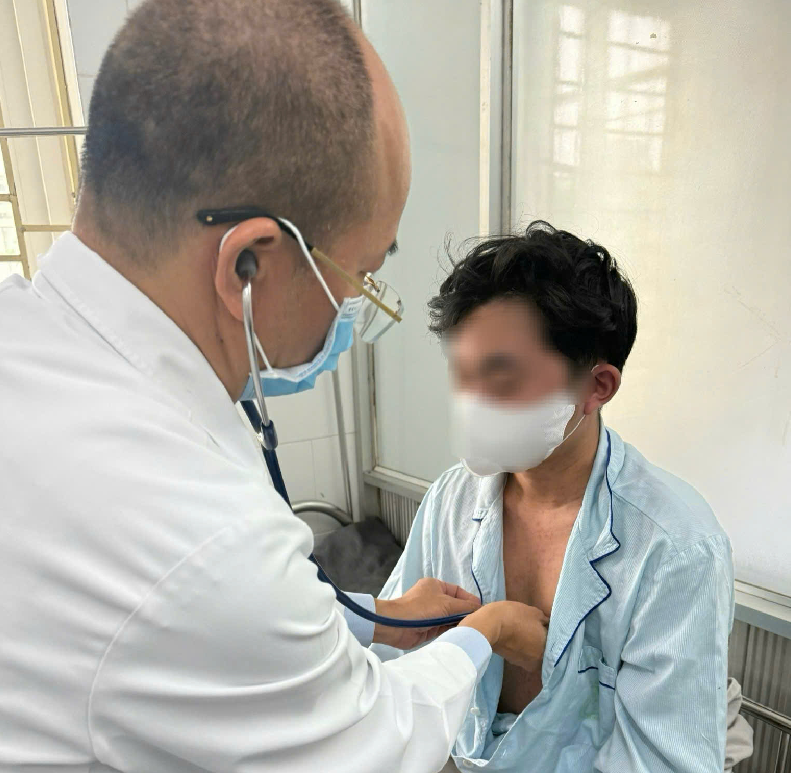
Associate Professor, Dr. Do Duy Cuong examines a patient - Photo: BVCC
Adults also need to be vigilant against measles.
Male patient NVA (38 years old, Thanh Hoa ), previously healthy, had a fever for 5 consecutive days with sore throat and upper respiratory tract infection.
After 3 days, the patient had a rash, initially on the back of the face spreading all over the body with itching and discomfort. In the following days, he had abdominal pain and diarrhea 4-5 times a day. After being admitted to the provincial hospital, he was diagnosed with rash fever. Treatment did not help, the patient coughed a lot and was transferred to Bach Mai Hospital ( Hanoi ).
At the Center for Tropical Diseases, after examination, doctors discovered that the patient had a rash syndrome suspected of measles, accompanied by upper respiratory tract inflammation syndrome. Examination of the throat revealed Koplik spots, which are white spots on the mucosa of the right cheek, plus signs of red eyes and swollen eyelids.
The patient was confirmed to have measles. After 5 days of intensive treatment, the patient recovered and was discharged from the hospital without complications.
In another case, female patient THB (37 years old, Nam Dinh ), had a fever for 3 days with a red rash starting from the face and neck and spreading to the whole body, accompanied by a sore throat, abdominal pain, diarrhea, and difficulty breathing. At the hospital, she was diagnosed with rash fever/leukopenia, increased liver enzymes, and pneumonia. After antibiotic treatment, it did not improve and she was transferred to Bach Mai Hospital.
Here, after testing, the patient was diagnosed with measles with complications of pneumonia. After 3 days of treatment, the patient was out of danger.
Another patient who was just admitted to the hospital, named VTT (21 years old), is a student in Dong Da, Hanoi. Three days before being admitted to the hospital, the patient developed a fever, accompanied by a rash that first appeared on the face and back of the neck, then spread to the whole body, accompanied by a cough, watery eyes, and runny nose.
The patient was diagnosed with an allergy, tested positive for measles, and was transferred to the Tropical Diseases Center of Bach Mai Hospital.
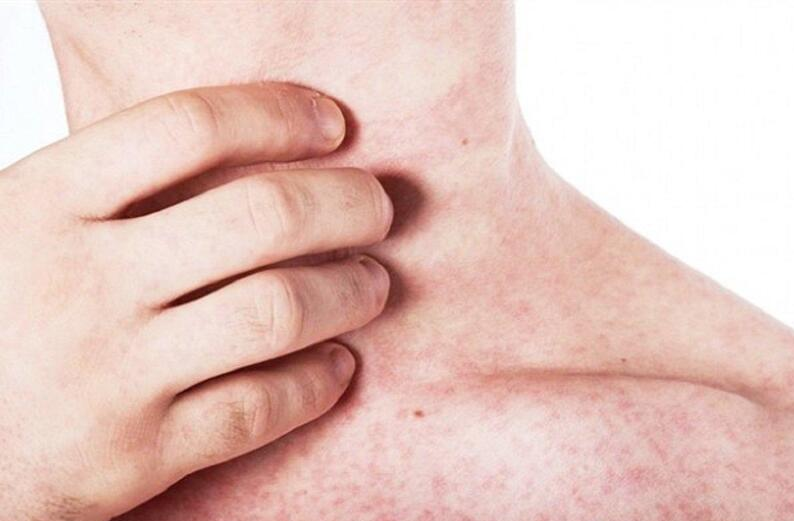
Measles in adults or children can cause dangerous complications - Illustration photo
Prevent dangerous complications
According to Associate Professor Cuong, Director of the Tropical Disease Center - Bach Mai Hospital, measles is an acute and dangerous infectious disease transmitted through the respiratory tract caused by a virus of the Paramyxoviridae family.
Recently, the weather in the North has changed seasons, so the Center has received many adult patients with measles. The measles virus is easily transmitted through the air or droplets, and the susceptible subjects are children who have not been vaccinated or adults when the amount of antibodies in the blood has decreased.
Measles in adults and children can cause dangerous complications such as encephalitis, pneumonia, conjunctivitis, keratitis, secondary infections causing otitis media, enteritis and other infections that greatly affect health and even endanger life.
Many adults subjectively believe that measles only occurs in children, so they do not go to the doctor and get treatment. For pregnant women, measles also has a negative impact on the mother's health and affects the fetus, especially in the first 3 months of pregnancy.
According to health experts, vaccination is the most effective measure currently to prevent measles.
Besides, it is necessary to improve the body's resistance by eating enough nutrients and supplementing vitamins and minerals properly.
Ensure daily personal hygiene, wash hands frequently with soap. Regularly clean nose, throat, eyes daily with common antiseptic solutions, especially those in close contact with the patient (living in the same house, patient's caregiver...).
Avoid touching your eyes, nose, and mouth as much as possible. Limit contact with people who are sick/suspected of being sick. When in contact with sick people, wear a medical mask and personal protective equipment.
Clean floors, doorknobs, stair railings, table tops, chairs, etc. with soap or regular detergents and clean water.
When symptoms of illness appear, go to a medical facility immediately for examination and treatment.











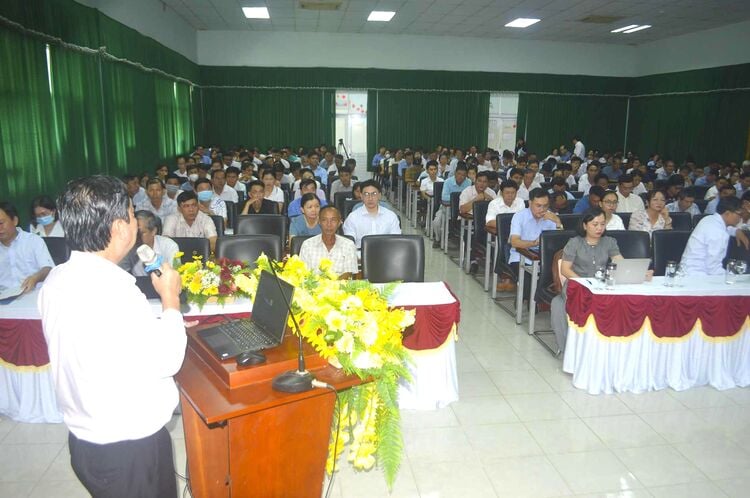

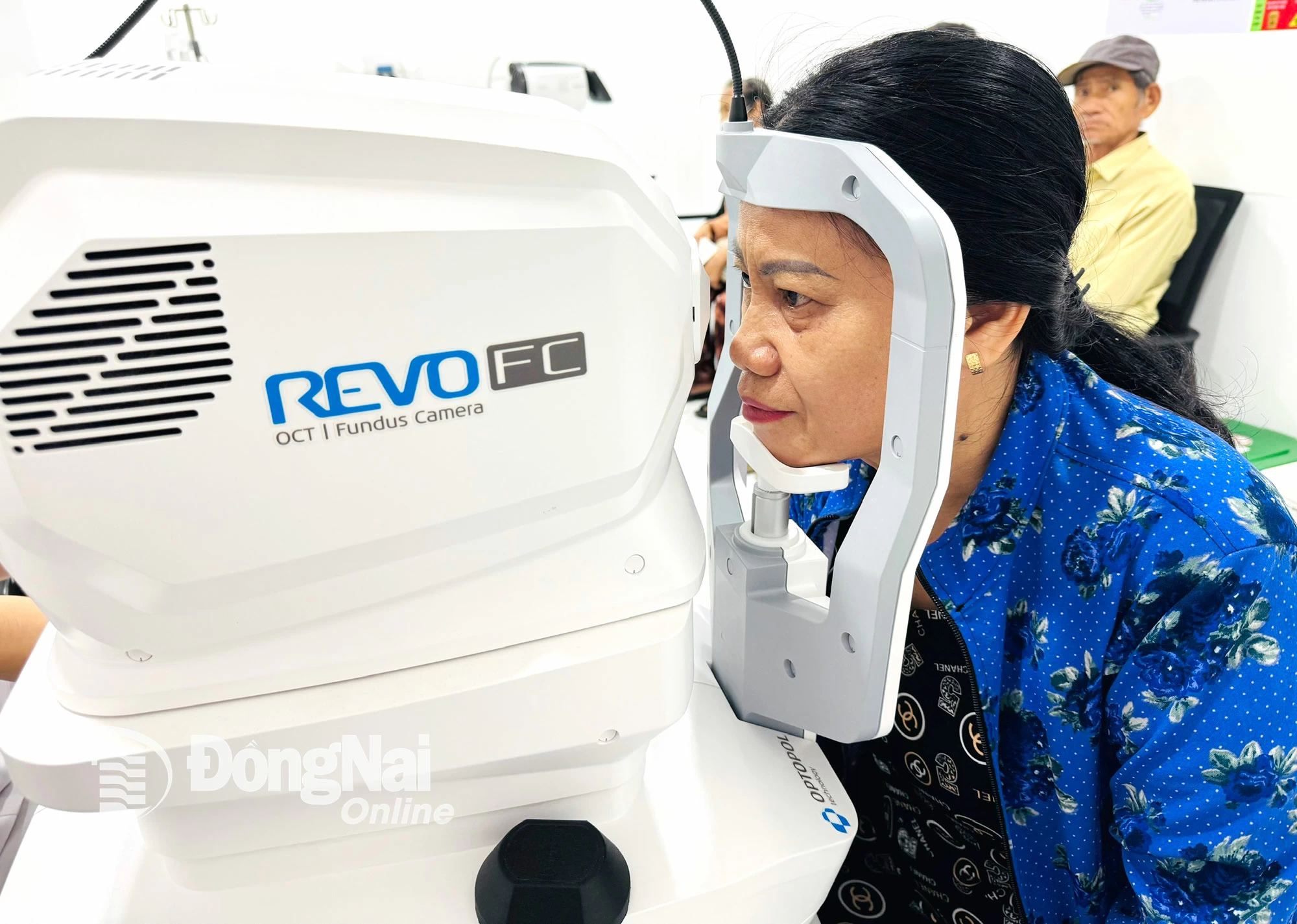

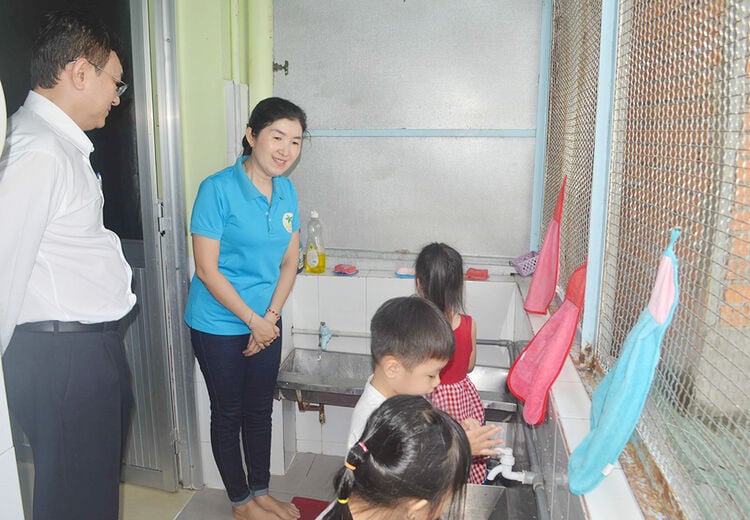


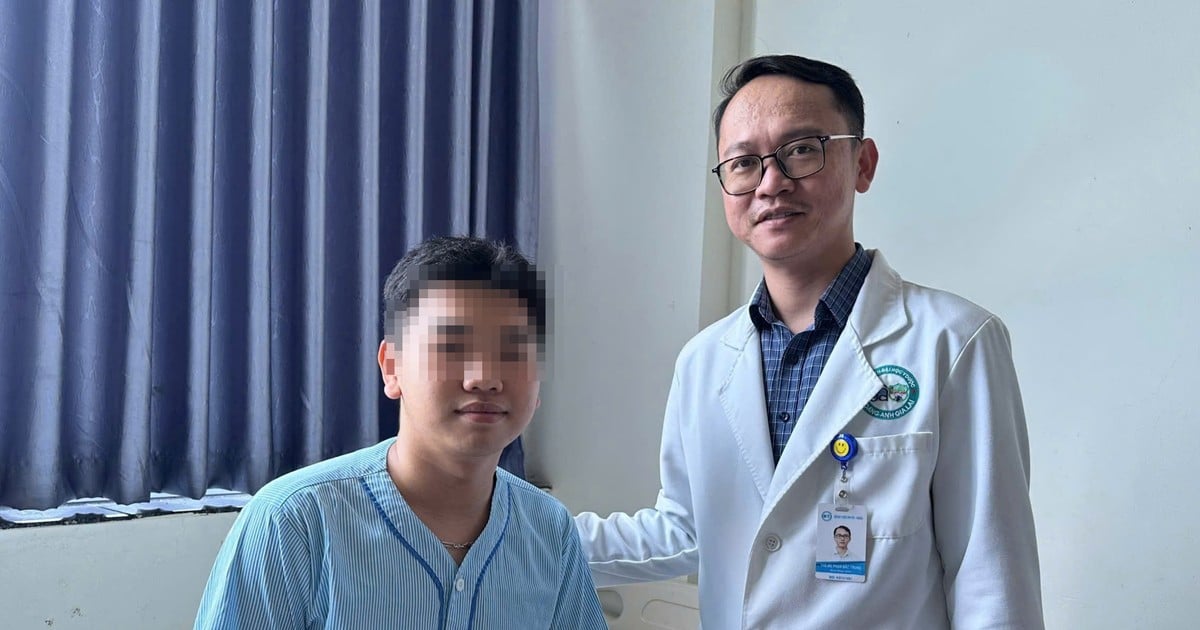

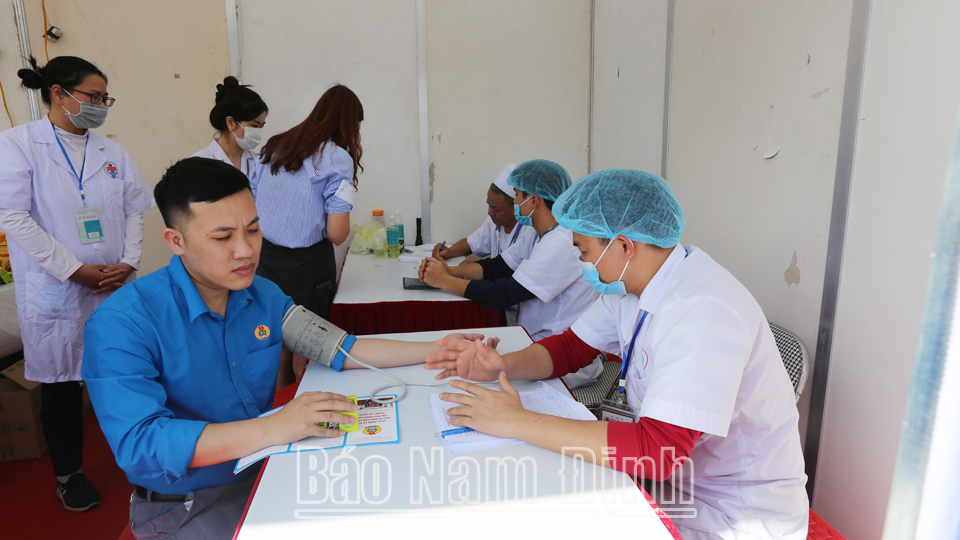















![[Photo] President Luong Cuong attends special political-artistic television show "Golden Opportunity"](https://vstatic.vietnam.vn/vietnam/resource/IMAGE/2025/8/22/44ca13c28fa7476796f9aa3618ff74c4)










































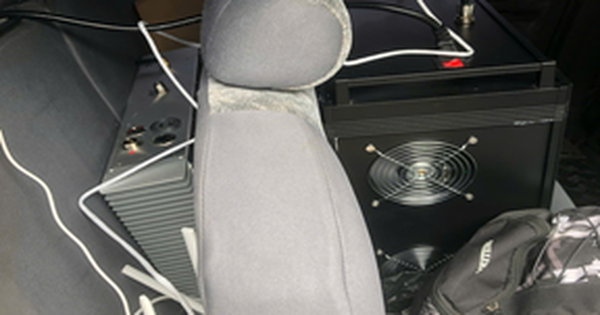




























Comment (0)